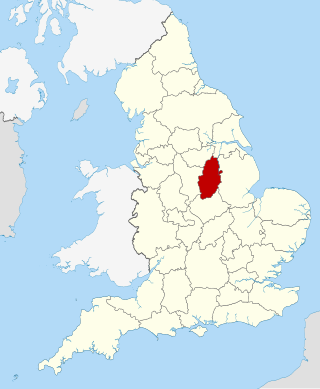Related Research Articles

Thames Valley Police is the territorial police force responsible for policing the Thames Valley, covering the counties of Berkshire, Buckinghamshire and Oxfordshire. It the largest non-metropolitan police force in England and Wales, covering 2,218 square miles (5,740 km2) and a population of 2.42 million people.
Police ranks are a system of hierarchical relationships in police organisations. The rank system defines authority and responsibility in a police organisation, and affects the culture within the police force. Usually, uniforms denote the bearer's rank by particular insignia affixed to the uniforms.

Avon and Somerset Police is the territorial police force responsible for law enforcement in the five unitary authority areas of Bristol, Bath and North East Somerset, North Somerset, Somerset, and South Gloucestershire in South West England.

Cambridgeshire Constabulary is the local territorial police force that covers the county of Cambridgeshire and Peterborough unitary authority. It provides law enforcement and security for an area of 1,311 square miles (3,400 km2) and population of 856,000 people, in a predominantly rural county. The force of Cambridgeshire includes the cities of Cambridge, Ely and Peterborough, the market towns of Chatteris, Huntingdon, March, Ramsey, St Ives, St Neots, Whittlesey, and town and Port of Wisbech. Its emblem is a crowned Brunswick star containing the heraldic badge of Cambridgeshire County Council.

Leicestershire Police is the territorial police force responsible for policing Leicestershire and Rutland in England. Its headquarters are at Enderby, Leicestershire.

The Hampshire and Isle of Wight Constabulary is the territorial police force responsible for policing the counties of Hampshire and the Isle of Wight in South East England.

Sussex Police is the territorial police force responsible for policing in the whole of Sussex. Its jurisdiction covers the ceremonial counties of East Sussex and West Sussex. The force is headquartered in Malling House, Lewes, East Sussex.

Nottinghamshire Police is the territorial police force responsible for policing the shire county of Nottinghamshire and the unitary authority of Nottingham in the East Midlands area of England. The area has a population of just over 1 million.
Falmouth Docks Police is non-Home Office ports police force whose primary role is security of Falmouth Docks. As of 2007 the constabulary numbered just four constables.
Reading Borough Police was a police force for the borough of Reading in the United Kingdom. The force was created on 21 February 1836, at which time it had a strength of 30 constables, two sergeants and two inspectors. Towards the end of the 19th century, Reading Borough Police had increased in size to 62 officers. However, the local population had risen to around 60,500, which meant one officer for every 1,000 inhabitants. By the time of the First World War the force had an establishment of 113 officers, however, due to military service only 30 officers were patrolling Reading.

The Police Act 1964 was an Act of the Parliament of the United Kingdom that updated the legislation governing police forces in England and Wales, constituted new police authorities, gave the Home Secretary new powers to supervise local constabularies, and allowed for the amalgamation of existing forces into more efficient units.

Oxfordshire Constabulary was the Home Office police force for the county of Oxfordshire, England, excluding the city of Oxford itself, from 1857 until 1968.

The River Tyne Police was a police force established under the Newcastle upon Tyne Port Act 1845 which patrolled the River Tyne in England between 1845 and 1968.
Penzance Borough Police was the police force for the borough and corporate town of Penzance, Cornwall, from 1836 to 1947. It was formed following the passing of the Municipal Corporations Act 1835, which reformed all UK boroughs, and stipulated that each appoint a Watch Committee to oversee a police force. The police force formed part of the commonality of the town's government, led by an elected Mayor, six aldermen and eighteen councillors.
Chipping Norton Borough Police was the police force responsible for policing the borough of Chipping Norton in Oxfordshire, England until 1856.
Abingdon Borough Police was the police force responsible for policing the Borough of Abingdon, situated in the county of Berkshire, England until 1889.
Bolton Borough Police was the police force responsible for policing the borough of Bolton, England for 130 years between 1839 and 1969.

The Hampstead Heath Constabulary (HHC) is the organisation that patrols Hampstead Heath, London, which is administered by the City of London Corporation.
References
- ↑ "Archived copy" (PDF). Archived from the original (PDF) on 17 October 2015. Retrieved 13 March 2017.
{{cite web}}: CS1 maint: archived copy as title (link) - ↑ "Banbury: Local government | British History Online". British-history.ac.uk. Retrieved 17 March 2017.
- ↑ "Thames Valley Police Museum - World War One - Banbury Borough". Thamesvalley.police.uk. 4 August 1914. Archived from the original on 14 March 2017. Retrieved 17 March 2017.